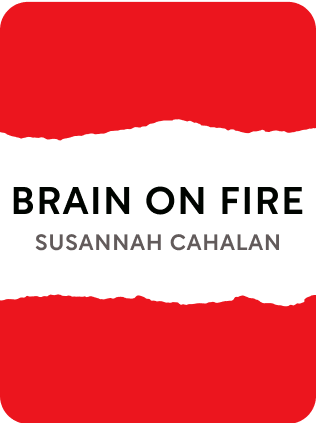

This article is an excerpt from the Shortform summary of "Brain On Fire" by Susannah Cahalan. Shortform has the world's best summaries of books you should be reading.
Like this article? Sign up for a free trial here .
What is survivor’s guilt? How does it affect Susannah Cahalan in Brain on Fire?
After her article about her illness was published, Susannah received a lot of emails from people who read it. One letter seemed resentful that she was able to get better.
Read more about the question “what is survivor’s guilt” in Susannah’s situation.
What Is Survivor’s Guilt?
On October 4, Susannah’s article runs in the Post. She receives hundreds of emails from people who have the disease and want to know more about it. She even receives phone calls from people who want a diagnosis from Susannah herself. Acknowledging how lucky she is to have recovered, Susannah is overwhelmed by survivor’s guilt. What is survivor’s guilt in this situation? One man, whose wife is ill, calls Susannah and aggressively challenges, “Why did you get better while my wife’s still sick? Are you so sure you won’t get sick again?” Two weeks later, he calls back to tell Susannah that his wife is dead.
It’s cost-prohibitive to test all psychiatric patients for an autoimmune disease. Susannah was lucky; she had a financial safety net that allowed for expensive testing. Many people with lifelong psychiatric conditions don’t have that kind of safety net and may remain incorrectly diagnosed their entire lives.
Many doctors don’t keep abreast of current medical research. While writing her article, Susannah reached out to Dr. Bailey, the neurologist who had declared Susannah an alcoholic. She was shocked to find that he had never heard of anti-NMDA-receptor encephalitis, even though her case had recently been covered in every major medical journal, the New England Journal of Medicine, and the New York Times.
Yet Susannah receives other types of phone calls. One comes from Bill Gavigan, whose daughter fell ill and was routinely misdiagnosed for more than a year. The girl was saved only because Bill’s sister sent him a video of Susannah talking about the disease on the Today show, along with Susannah’s article in the Post. Bill gave the video and the article to his daughter’s neurologist, who immediately agreed to test Bill’s daughter for anti-NMDA-receptor encephalitis. The girl was diagnosed and treated by Dr. Dalmau’s colleagues. She made a complete recovery. On the phone, Bill tells Susannah, “Without you, our daughter would be dead.” Susannah uses moments like these to help combat her feelings over the question “what is survivor’s guilt?”
Susannah’s article is translated into Arabic and published in multiple papers throughout the Middle East. Syria’s news agency publishes numerous stories of the Syrian boy who’d become a miracle doctor in the US. The Syrian ambassador to the UN congratulates Najjar personally. That same year, Najjar is designated one of the best neurologists in the US by New York Magazine.
Susannah returns to the Post full-time. She and Stephen move in together. In a few months, she feels comfortable in her own skin again. There’s no longer a gap between what she feels inside and how other people see her. She doesn’t struggle for words anymore. She feels in control. Most importantly, she’s regained her old sense of humor.

———End of Preview———
Like what you just read? Read the rest of the world's best summary of Susannah Cahalan's "Brain On Fire" at Shortform .
Here's what you'll find in our full Brain On Fire summary :
- How a high-functioning reporter became virtually disabled within a matter of weeks
- How the author Cahalan recovered through a lengthy process and pieced together what happened to her
- How Cahalan's sickness reveals the many failures of the US healthcare system






